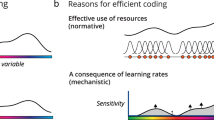Abstract
In this paper, we consider the task of automatic synthesis/learning of pattern recognition systems. In particular, a method is proposed that, given exclusively training raster images, synthesizes complete feature-based recognition system. The proposed approach is general and does not require any assumptions concerning training data and application domain. Its novelty consists in procedural representation of features for recognition and utilization of coevolutionary computation for their synthesis. The paper describes the synthesis algorithm, outlines the architecture of the synthesized system, provides firm rationale for its design, and evaluates it experimentally on the real-world task of target recognition in synthetic aperture radar (SAR) imagery.
On a temporary leave from Poznań University of Technology, Poznań, Poland.
Preview
Unable to display preview. Download preview PDF.
Similar content being viewed by others
References
Banzhaf, W., Nordin, P., Keller, R., Francone F.: Genetic Programming. An Introduction. On the automatic Evolution of Computer Programs and its Application. Morgan Kaufmann, San Francisco, Calif. (1998)
Bhanu, B., Krawiec, K.: Coevolutionary Construction of Features for Transformation of Representation in Machine Learning. Proc. Workshop on Coevolution (GECCO 2002), AAAI Press, New York (2002) 249–254
Breiman, L.: Bagging predictors. Machine Learning 24 (1996) 123–140
Draper, B., Hanson, A., Riseman, E.: Knowledge-Directed Vision: Control, Learning and Integration. Proc. IEEE 84 (1996) 1625–1637
Luke, S.: ECJ Evolutionary Computation System. http://www.cs.umd.edu/projects/plus/ec/ecj/ (2001)
Luke, S., Wiegand, R.P.: When Coevolutionary Algorithms Exhibit Evolutionary Dynamic. Proc. Workshop on Coevolution (GECCO 2002), AAAI Press, New York, N.Y. (2002) 236–241
Matheus, C.J.: A Constructive Induction Framework. Proc. 6th Int’l Workshop on Machine Learning, Ithaca, New York (1989) 474–475
Peng, J., Bhanu, B.: Closed-Loop Object Recognition Using Reinforcement Learning. IEEE Trans. on PAMI 20 (1998) 139–154
Platt, J.: Fast Training of Support Vector Machines using Sequential Minimal Optimization. Advances in Kernel Methods — Support Vector Learning, B. Schölkopf, C. Burges, and A. Smola, eds., MIT Press, Cambridge, Mass. (1998)
Potter, M.A., De Jong, K.A.: Cooperative Coevolution: An Architecture for Evolving Coadapted Subcomponents. Evolutionary Computation 8 (2000) 1–29
Ross, T., Worell, S., Velten, V., Mossing, J., Bryant, M.: Standard SAR ATR Evaluation Experiments using the MSTAR Public Release Data Set. SPIE Proc.: Algorithms for Synthetic Aperture Radar Imagery V, Vol. 3370, Orlando, FL (1998) 566–573
Segen, J.: GEST: A Learning Computer Vision System that Recognizes Hand Gestures. Machine Learning. A Multistrategy Approach. Volume IV, Michalski, R.S., Tecuci, G., eds., Morgan Kaufmann, San Francisco, Calif. (1994) 621–634
Teller, A., Veloso, M.: A Controlled Experiment: Evolution for Learning Difficult Image Classification. Proc. 7th Portuguese Conference on Artificial Intelligence, Springer Verlag, Berlin, Germany (1995) 165–176
Wiegand, R.P., Liles, W.C., De Jong, K.A.: An Empirical Analysis of Collaboration Methods in Cooperative Coevolutionary Algorithms. Proc. Genetic and Evolutionary Computation Conference, Morgan Kaufmann, San Francisco, Calif. (2001) 1235–1242
Witten, I.H., Frank, E.: Data Mining: Practical Machine Learning Tools and Techniques with Java Implementations. Morgan Kaufmann, San Francisco, Calif. (1999)
Wolpert, D., Macready, W.G.: No Free Lunch Theorems for Search. Tech. Report SFI-TR-95-010, The Santa Fe Institute (1995)
Author information
Authors and Affiliations
Editor information
Editors and Affiliations
Rights and permissions
Copyright information
© 2003 Springer-Verlag Berlin Heidelberg
About this paper
Cite this paper
Krawiec, K., Bhanu, B. (2003). Coevolutionary Feature Learning for Object Recognition. In: Perner, P., Rosenfeld, A. (eds) Machine Learning and Data Mining in Pattern Recognition. MLDM 2003. Lecture Notes in Computer Science, vol 2734. Springer, Berlin, Heidelberg. https://doi.org/10.1007/3-540-45065-3_20
Download citation
DOI: https://doi.org/10.1007/3-540-45065-3_20
Published:
Publisher Name: Springer, Berlin, Heidelberg
Print ISBN: 978-3-540-40504-7
Online ISBN: 978-3-540-45065-8
eBook Packages: Springer Book Archive




